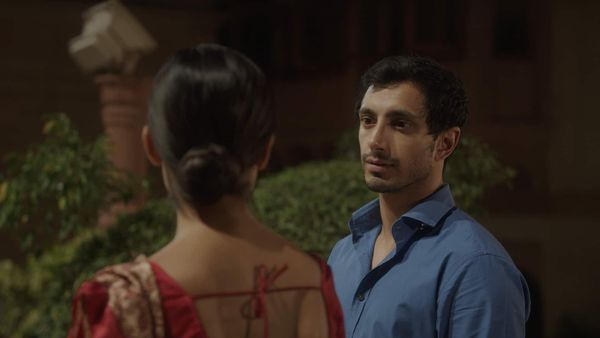Eye For Film >> Movies >> Trishna (2011) Film Review
Trishna
Reviewed by: Jennie Kermode

Some stories are as old as humanity. Trishna's has been told before, many times, and notably as Tess Of The D'Urbervilles. Here she is no Wessex lass but a 21st century Rajasthani peasant, daughter of a poor family. She is blessed with intelligence and a noteworthy capacity for hard work, but cursed with beauty, and it is this that catches the eye of Jay (Riz Ahmed), the dissolute son of a rich man. He is the only man in her life, but he is quite enough.
In the central role, Freida Pinto shows that she has come of age, delivering the story's most powerful screen heroine yet. Quietly bearing up under almost intolerable pressure, her Trishna survives one indignity after another, seizing her chances in life only to find herself betrayed time and again. Ahmed, cast against type, gives Jay a kind of innocence that almost belies his cruelty, as if he were genuinely so self-centered as to be incapable of seeing the power imbalance between himself and Trishna, or how he abuses it. As he drifts back and forth from his family in England he gives the tale an added dimension. It was always about class, but here it is also about the relationship between privileged Europe and postcolonial, indebted rural india.

Trishna is nominally free. Legally she has the right to work, to vote, to live an independent life, but in reality she is as constrained as Tess. Not only does she struggle to assert herself socially because of societal attitudes to women, but she is, increasingly, in love with Jay, a love that Pinto manages to make real despite the obvious suffering it entails. Much of the dialogue is improvised. It often sounds empty, inane, but over time we come to see how these small utterances are yet another layer of deception, coming together to construct a cage for our bird-like heroine. Unformidable, even pitiable in its units, language becomes terrible in its mass.
The film's locations are stunning, vividly photographed, rich in colour. Much of the story takes place in crowded cities that manage to emphasise Trishna's isolation as much as any lonely moor. Amit Trevedi and Shigeru Umebayashi's sweeping score adds to the sense of epic scale, yet the key to the film is in its intimate moments, its close interiors, where the imagery of modernity predominates and Trishna's outsider status is fetishised, diminishing her personhood. Here Pinto carries the film with her eyes, with small gestures speaking for her when there are no words at all.
Trishna is a triumph, a mature and provocative interpretation of a much respected classic, bold in its understanding of desire and graceful in its barely repressed fury. It's every bit as relevant as Hardy's tale and just as difficult and compelling to observe. There was always more to this than purity.
Reviewed on: 13 Feb 2012















